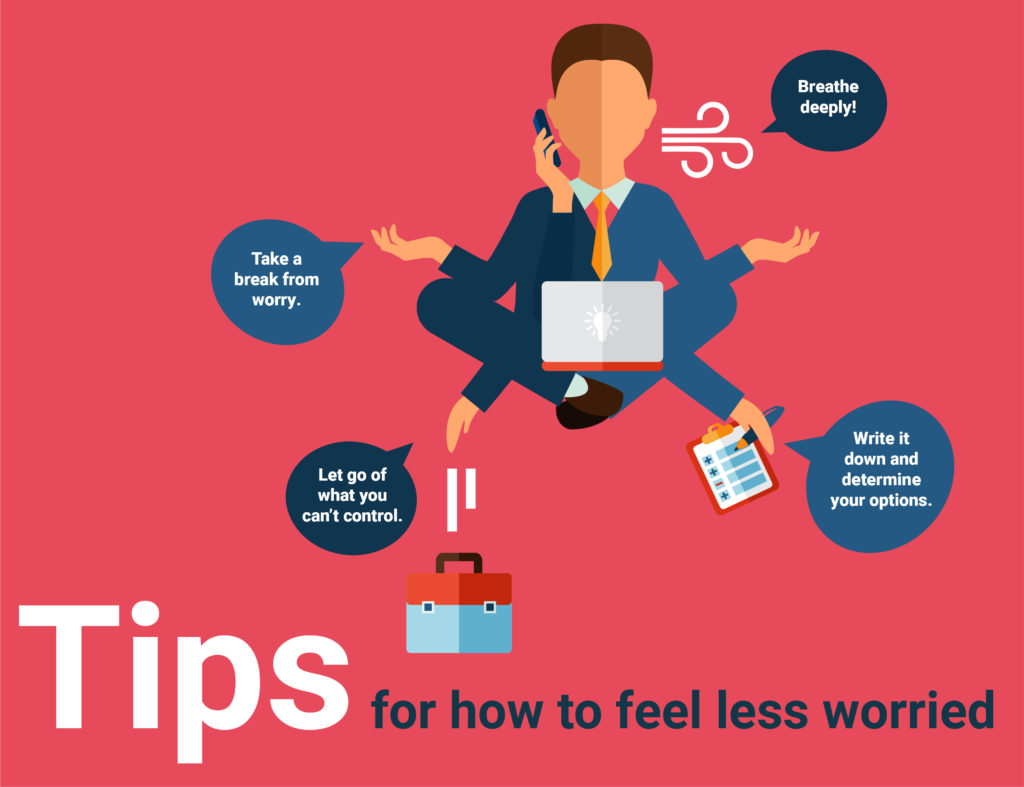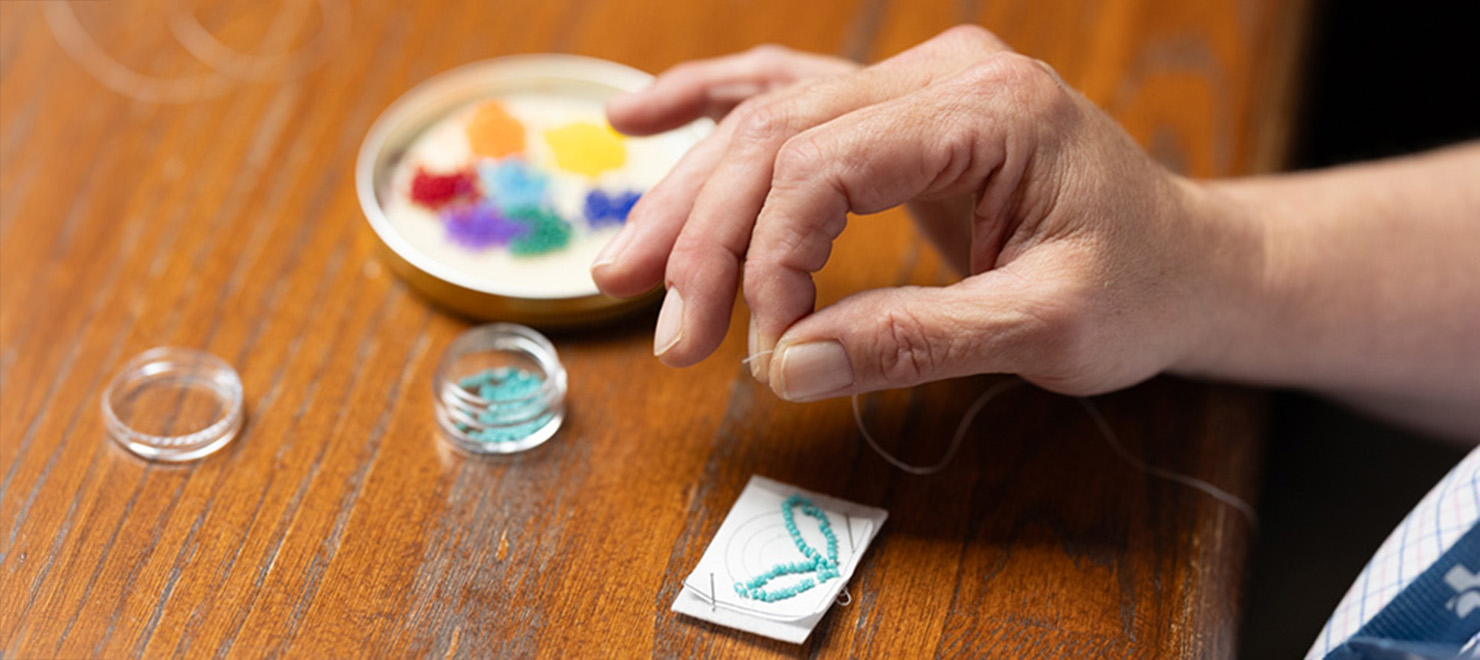
Imagine this: Your shift at work is (finally) over. You want to relax at home or spend time with your family or friends but worry has you stuck in negative thoughts. Maybe you are worried about how you’re going to pay your bills on time. You might be worrying about whether or not you will have enough time after work to go to your child’s school play. Or instead, you might be thinking about upcoming work deadlines.
We have all experienced worry. Many of us are facing real challenges in our lives – so it makes sense that we worry.
“Worry is a part of life,” explained Amanda Pontefract, Psychology Professional Leader at The Ottawa Hospital. “It is not about whether or not we worry – it’s about how much we worry.”
What does worry feel like?
“Worry can feel like there is a broken record player in our head,” explained Jessica Campoli, psychology resident at The Ottawa Hospital. “It plays our worry over and over again. The more often the record plays, the bigger the worry grows.”
When we worry too much, we may feel trapped by unhelpful thoughts that can leave us feeling bad and powerless. We may think that there is nothing we can do about worry, but is this really true?

What can I do to worry less?
Here are some of Campoli’s tips to help you manage worry so that you can approach problems more effectively:
- Breathe deeply! Full, deep breaths help your brain process information better. When you breathe deeply, you lower the stress response in your body. It also puts you in a problem-solving mindset. Even spending one to two minutes focusing on deep breaths can make a big difference in how you feel and think about your worries.
- Write it down and determine your options. Writing down what is worrying you and coming up with a few options can help you focus on the here-and-now and what you can control. This helps you to assess the problem realistically. So, take some time to list all possible solutions and select the best course of action.
- Let go of what you can’t control. Worrying can trick you into thinking that you have complete control and certainty in life. Is there some uncontrollable part of your worry of which you can let go? When you practice to let go of the things that you cannot control, you are deciding to spend your time and energy on the parts of your life you can control.
- Take a break from worry. Spending as few as 30 seconds a day focusing on something positive can make a noticeable difference in how you feel. Does the worry seem as big as you first thought? If it does, is it time to consider a new approach? When you take a break from worry, you can often come back to it with a fresh perspective.
When to get help for worry
“Worry can take up a lot of time, energy and attention,” said Dr. Pontefract. “If worry is interfering with your health, relationships, work, or keeping you up at night, it may be time to seek professional support.”
Employees at The Ottawa Hospital can visit the health wellness page on myHospital for resources. There are also many different local organizations that can help:

Support patient care and research at
The Ottawa Hospital
You might also like…
Bringing communities together, one stitch at a time
In celebration of June being both National Indigenous History Month and Pride Month, The Ottawa Hospital hosted a beading workshop for Indigenous and 2SLGBTQIA+ staff and their allies.
Aging well: Guidance for older adults
In this special video series for both older adults and their loved ones, geriatric care specialists from The Ottawa Hospital offer guidance on navigating common health-care challenges that may arise with aging.
How to stay safe around water this summer
Drowning can happen to anyone — even strong swimmers. Emergency physician Dr. Christian Vaillancourt debunks common myths about drowning, explains how to act quickly to save a life, and shares what you can do to keep yourself and your loved ones safe around water.
What’s the difference between an optician, optometrist, orthoptist and ophthalmologist?
“Do I need to see an optician, optometrist, orthoptist or ophthalmologist?” We asked Ophthalmologist Dr. Annick Fournier to break down each role so you will know who to consult for your specific eye care needs.
Understanding rabies: Risks, vaccination and what to do after a bite
Although rare in Canada, rabies is almost always fatal once symptoms appear. Infectious diseases expert Dr. Michaeline McGuinty shares how rabies is spread, when to get vaccinated and what to do after a bite.
“My story doesn’t have to be your story”: New screening test better at preventing cervical cancer
“I went from being a 32-year-old new mom to a cancer patient with an incurable diagnosis.” Alicia’s journey underscores the critical role of HPV testing in preventing cervical cancer. Discover how the new HPV test can save lives and find out how to book your cervical screening appointment with our “Superscreener.”


 To reset, hold the Ctrl key, then press 0.
To reset, hold the Ctrl key, then press 0.





